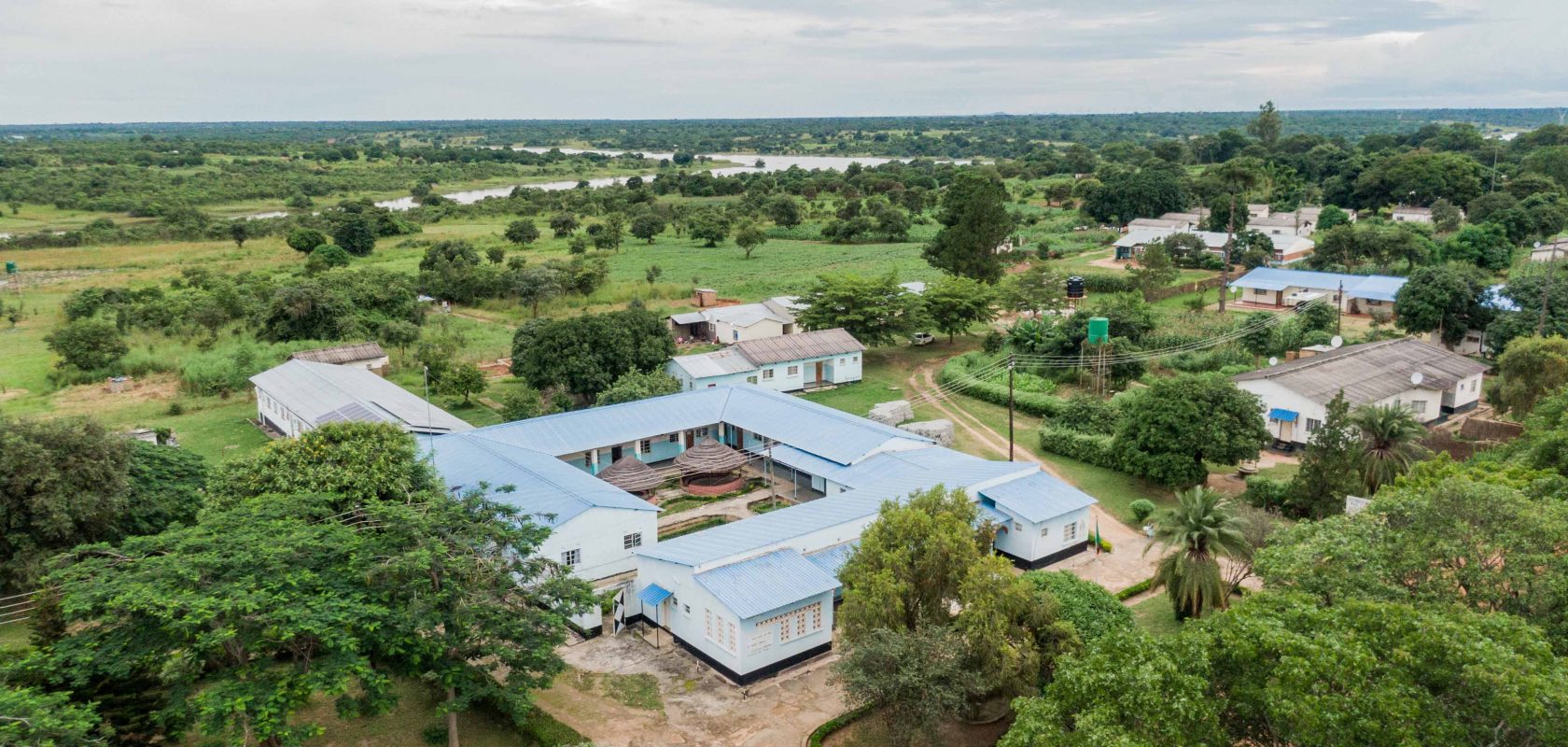For rural health clinics in many parts of Africa, electricity is not being taken for granted. In sub-Saharan Africa, 3 in 4 health facilities are estimated to operate without reliable access to electricity. When the sun sets, clinics operate in darkness. Medical appliances are without power, laboratories are at a stand-still. At many clinics, water cannot be pumped. Both healthcare workers and patients are put at risk.
St. Paul’s Mission Rural Health Centre is located in the Central Province of Zambia, 200 kilometres from the capital of Lusaka. The clinic has suffered for a long time from consecutive power cuts, especially during the rainy season. The 22 staff members working at the facility, and serving an area of 13,200 people, have been forced to either stop their work or carry out procedures in the dark with the help of small handheld torches.
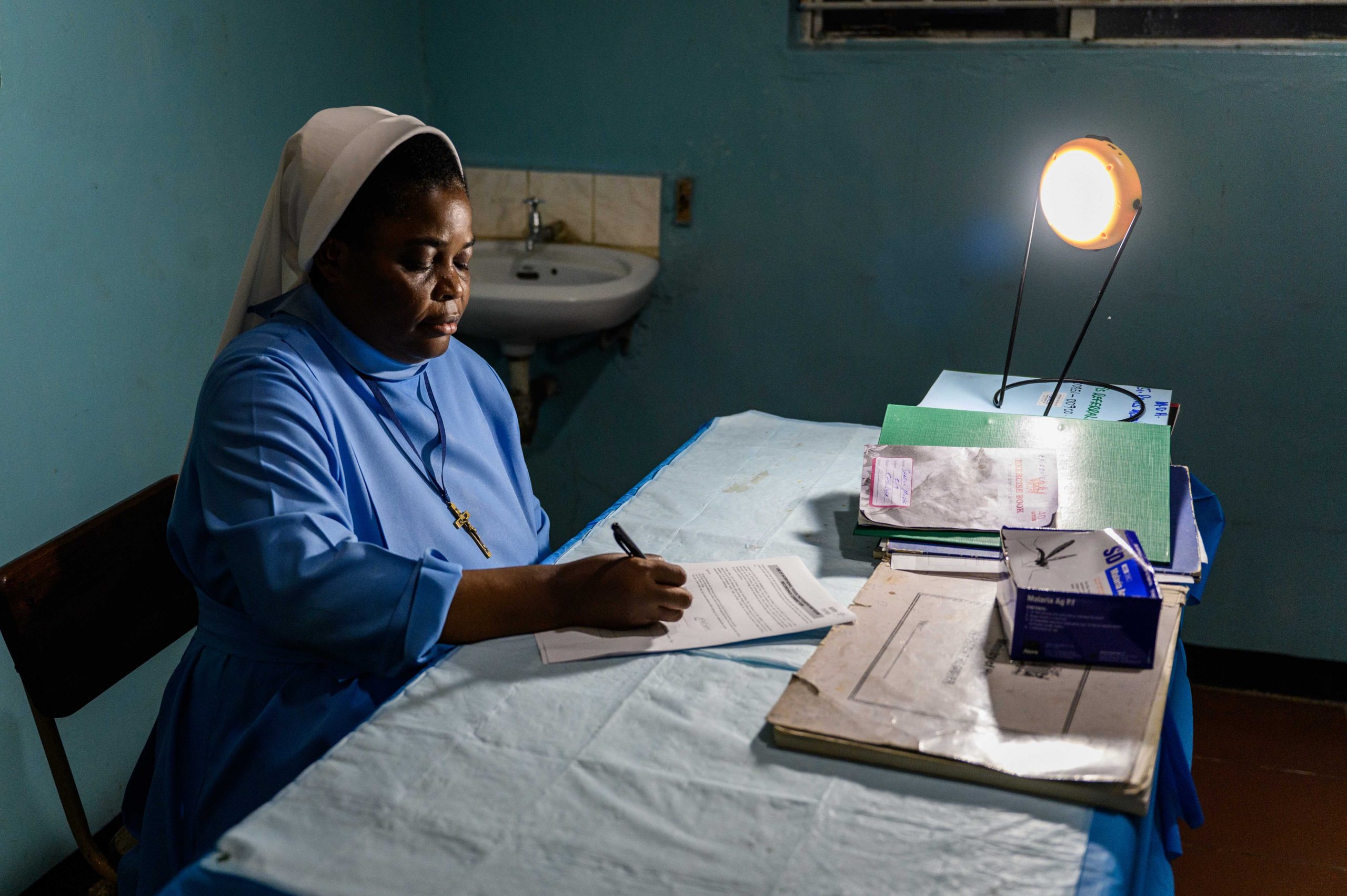
Sister Grace Mukupa has worked at St. Paul’s since 2013.
Going without electricity during night time means babies are being delivered in the dark, the laboratory has to stop their work, and there is a lack of water, as the water pumps are electric.
“There is a large health risk with no electricity. When the power is cut that means we have no water. No water means we are not able to clean bed sheets or tools as needed or they cannot be used because they have not been cleaned. We also feel unsafe walking from our homes in complete darkness and it can be demotivating,” says Kasongo Phiri, Nurse at St. Paul’s.
Sister Grace Mukupa is a Night Nurse and has worked at the clinic since 2013, “We are having a lot of challenges. When the power goes, then you don’t have anything. Maybe you have a woman in labour, then you have to find the ways and means of helping that woman.”
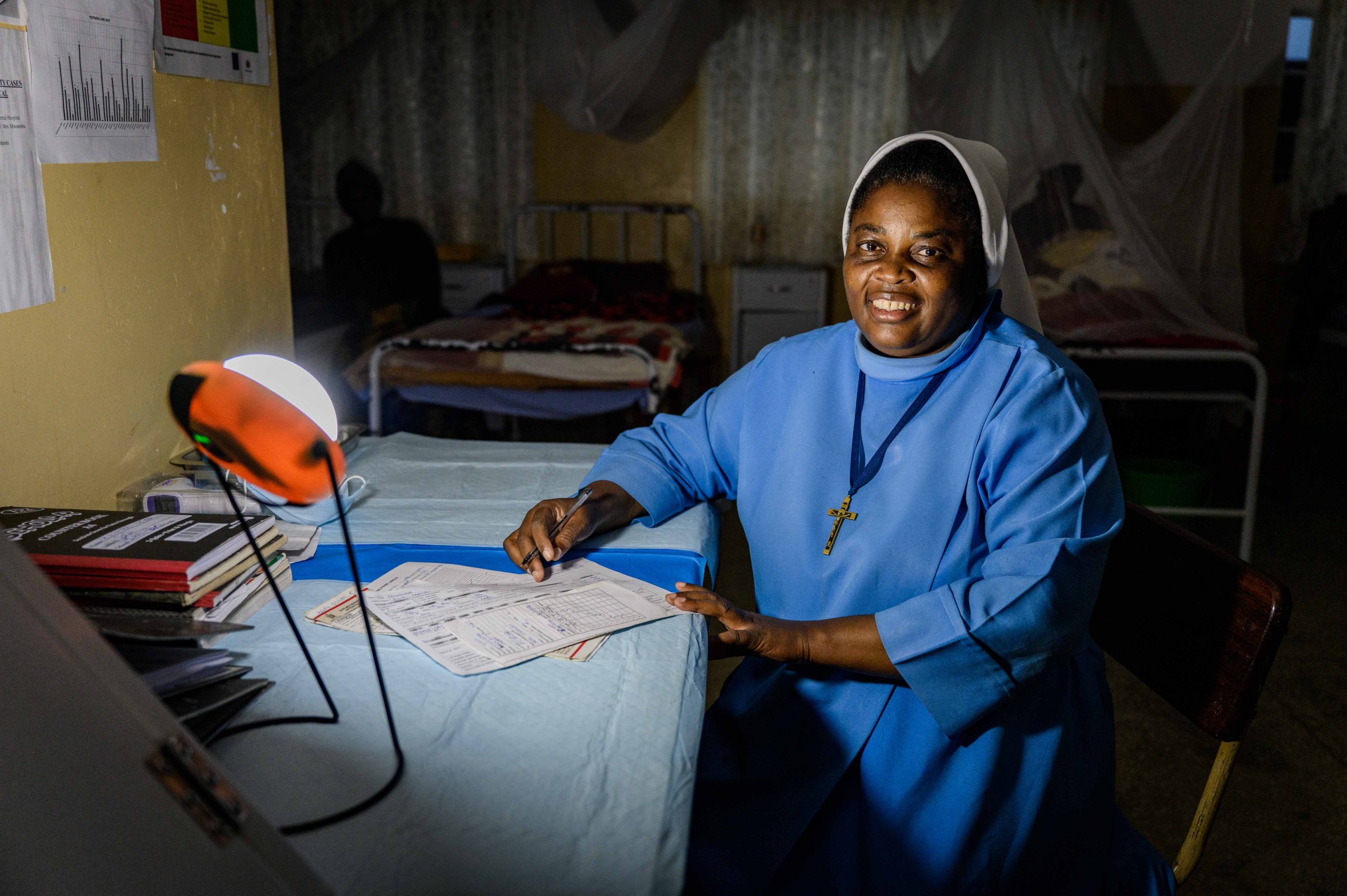
As part of a larger pilot to Power Healthcare, SolarAid, together with CHAZ (Churches Health Association Zambia) distributed the latest plug-and-pay, Pay-As-You-Go solar systems accompanied by energy-efficient medical appliances to St. Paul’s Mission in December 2020. Solar lights were installed at the laboratory, the children’s ward and the maternity wards.
“It has really come at the right time when we really need it,” says Sister Grace. She explains, “We have a backup now, you can do anything at any time. When there is no electricity, you are able to come and work. Like those in the lab, you can now call them and they will be able to work. Even us, I’m a night nurse and when there is no light at least we are able to work.”
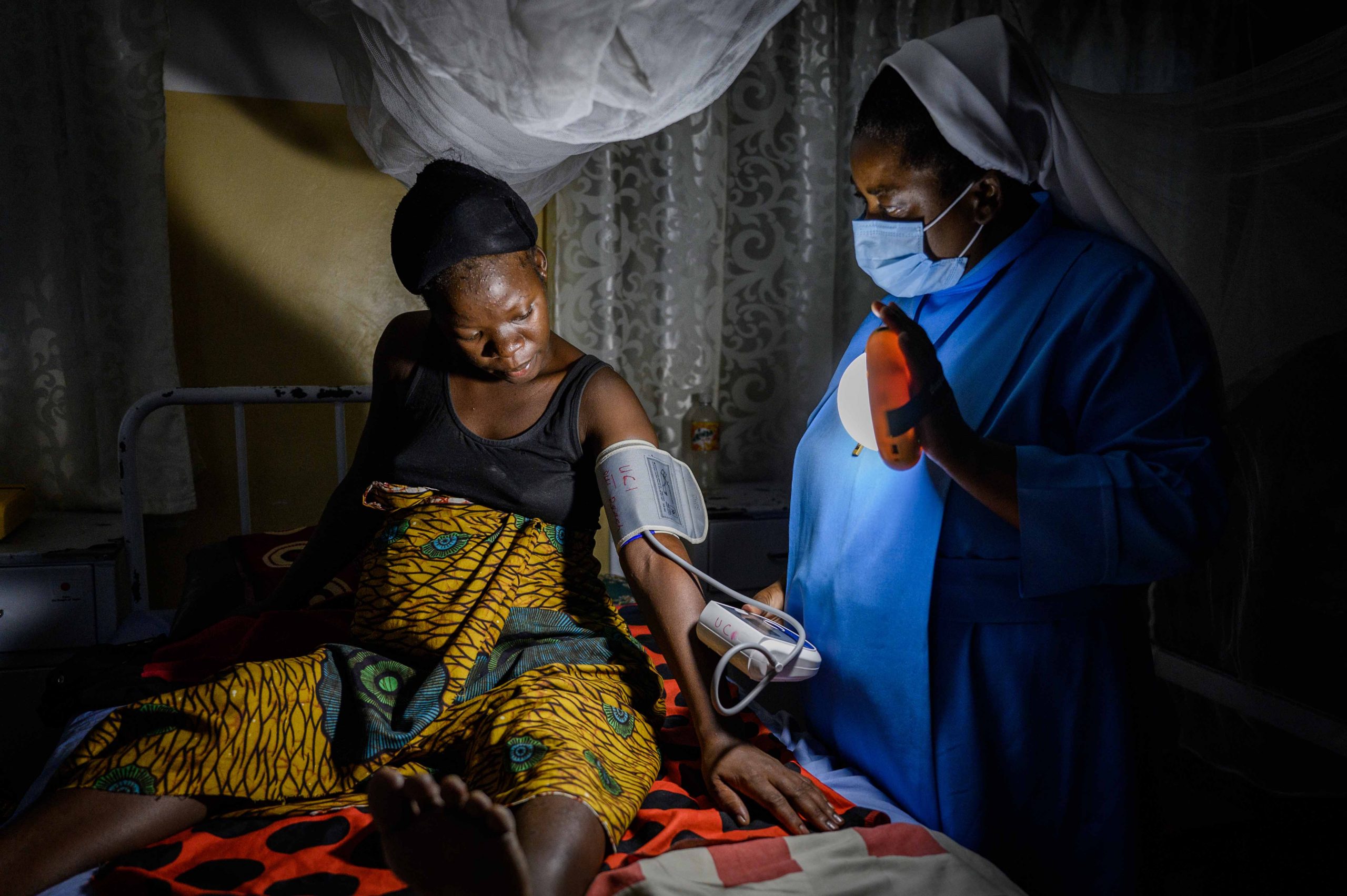
The solar products do not only give much needed light during night time, they are also able to power small medical equipment, such as a pulse oximeter and a foetal dopplers, which in contrast to the traditional foetal scope, allows for a distance between the medical worker and the patient. “The foetal doppler, we are using it in the maternity ward. It’s good! They are not much in contact with the mother. It is helping preventing the coronavirus, and other infections. And the patients are happy, they are able to hear the sound of the heartbeat of the baby,” says Sister Grace Mukupa.
It has been a relief for the clinic to receive solar power in the maternity ward. In many rural health facilities it is not uncommon to ask the expectant mother to bring her own candle when she is coming in for delivery, “For nurses on night duty, especially when you have a labour without lighting and you will need to use phone torches. The light is not enough. Maybe the woman will need suture, how do you do that without enough light?” says Marianne Mwale who has worked as a Laboratory Technologist at St. Paul’s for three years.
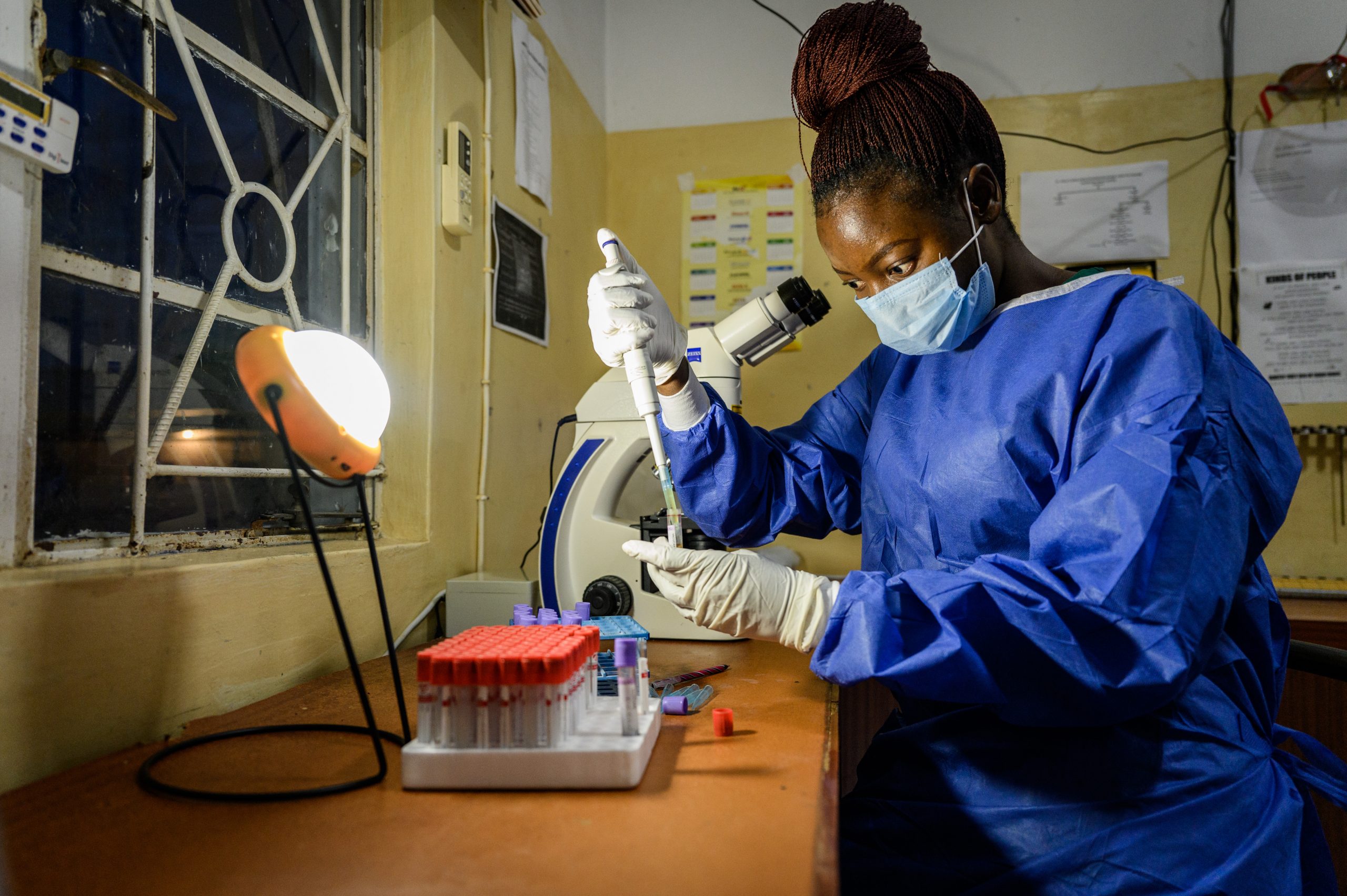
Marianne Mwale, Laboratory Technician.
St. Paul’s is open 24 hours and there is always someone on duty. The laboratory, where around 100 different tests are analysed each day, is a vital part of the facility, but the ongoing problem with power cuts at night has made it difficult to work and some imperative tests have had to wait until morning to be analysed. “You can’t do anything. You need light to examine your patients, and for you to run lab test you need light. You can’t do anything, not even the simplest things you can do without light,” says Marianne Mwale.
As the laboratory now has reliable light during the night, Marianne’s workload is now more easily managed and urgent tests can be run at any time. “The turnaround time for the results have reduced, in the sense that if they order for a test in the night time, I will be called in instead of work piling up in the morning waiting for the sunlight,” explains Marianne Mwale. “Now, with the solar light, in the case that there is no power and the clinicians need a test to be run in the lab, I’m able to do that definitely no matter the time. I’ll have light there, and they’ll get their result, and the patient will be helped as quickly as possible,” she continues.
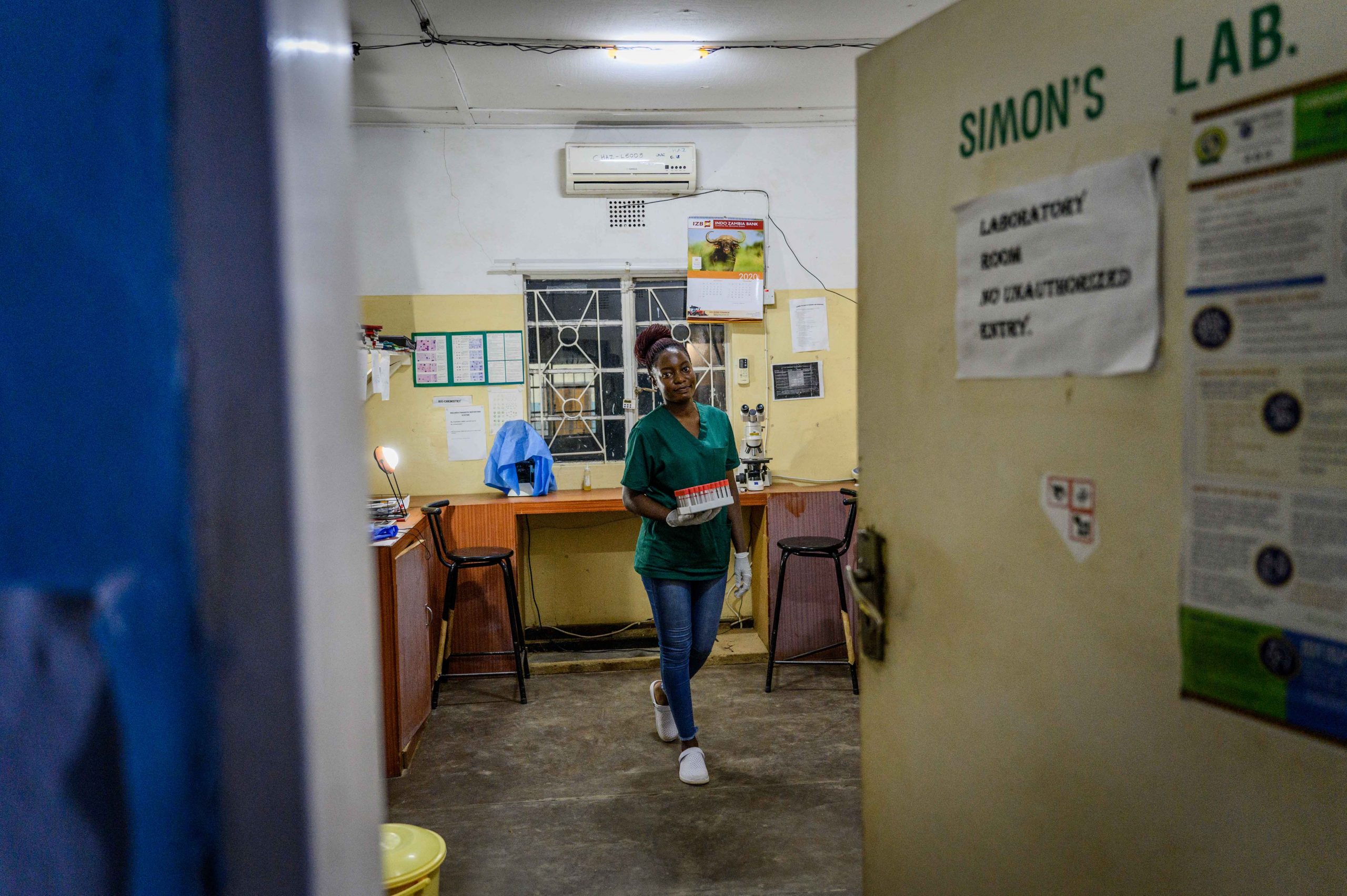
For an under-resourced health facility such as St. Paul’s, solar power also means the clinic is saving money on electricity. “It is reliable, and it is cheaper. It is better to use the solar, because it means that over a period of time you don’t have to pay anything. So the expense of electricity will come down,” says Sister Grace Mukupa.
Tokozile Ngwenya is working as a Monitor and Evaluation consultant with SunnyMoney in Zambia, she has been travelling to rural clinics where solar products have been installed to carry out interviews with staff and patients. She says, “Living in the urban part of Zambia, our inconveniences of having power outages for a few hours, we have the luxury of being able to call the national electricity company hotline to file in a complaint because I am unable to cook a meal. It sits differently compared to a rural health facility who is dependant on electricity to save lives and bring life onto this earth. Their dependence on electricity is the defying factor between life and death. It is paramount that the front line health workers are equipped and supported correctly to be able to conduct their duties with ease and reduce mortality cases.”
No health clinic should be left in the dark. SolarAid aims to power rural clinics, so that patients are treated safely. Learn more about our work to bring clean power to rural health clinics here.
